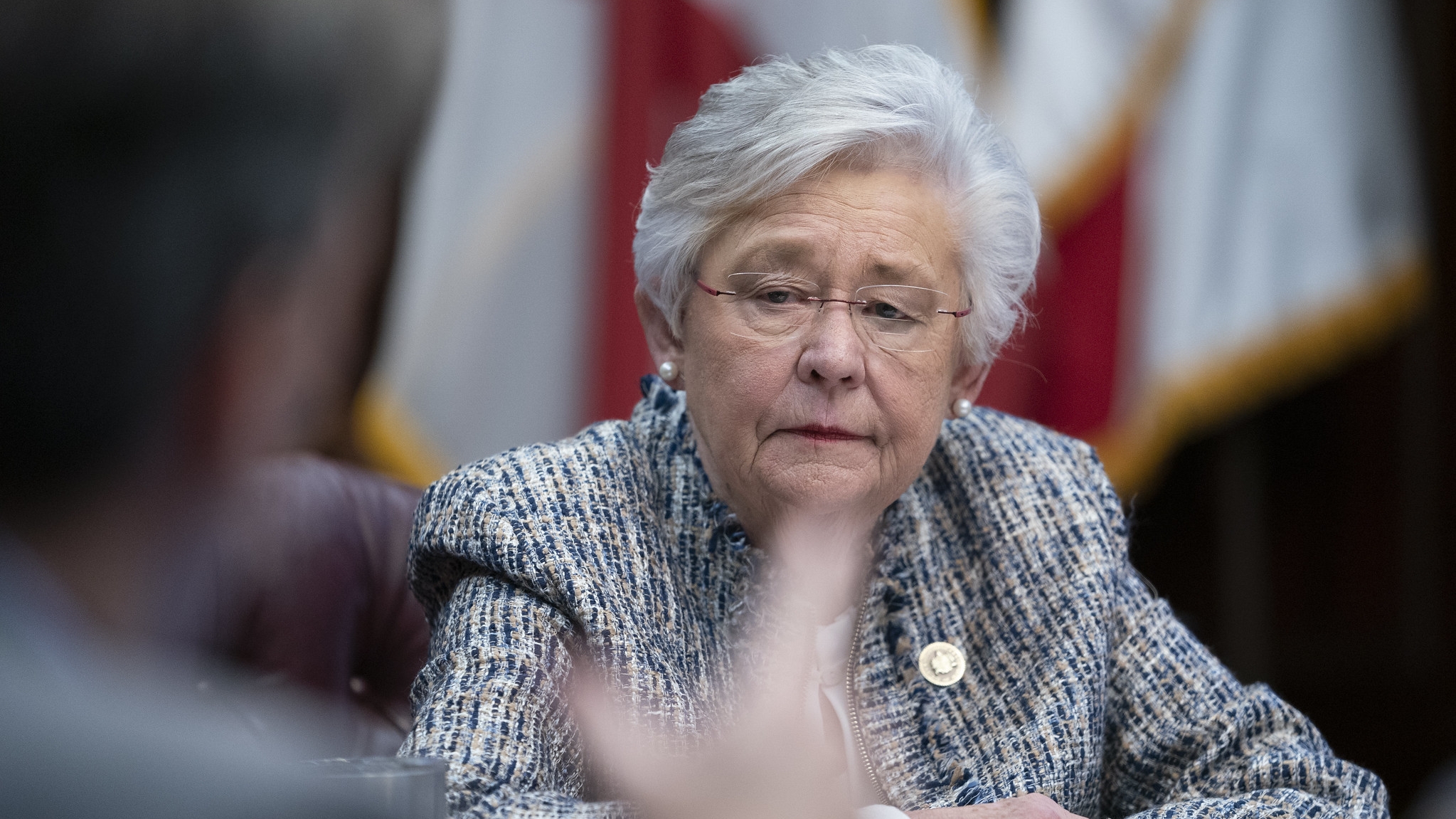Alabama Republican Governor Kay Ivey’s proposed state budgets put more toward education and state employees’ pay, teachers’ supplies and pre-K class expansion, and to the Department of Corrections, but doesn’t include additional funds for broadband expansion.
The state government’s fiscal year starts three months ahead of the calendar year. Ivey’s proposed budgets cover the 2022 fiscal year, which runs from Oct. 1, 2021, to Sept. 30, 2022. Alabama is one of just a few states that has two state budgets: the General Fund, which covers most non-education operations, and the Education Trust Fund, which covers educational expenditures like K-12 schools, community colleges and the state’s pre-K program.
The Education Trust Fund
State Finance Director Kelly Butler told reporters on Wednesday that Ivey’s proposed Education Trust Fund budget of $7.65 billion is a $440 million increase over the current year budget, and includes a 2 percent pay raise for education employees in pre-K through two-year colleges at a cost of approximately $90 million.
Butler said an additional $18.5 million proposed allocation would pay for an increase for teachers supplies from $600 a year to $1,000.
A decline in the number of students enrolled in the state’s public schools means less money is allocated to Alabama’s schools, Butler said. Public schools receive state funding based upon the number of enrolled students. Educators believe the decline in enrollment is because some parents are not sending their children back to schools during the COVID-19 pandemic.
Butler said some educators believe a number of those students will return to school in the fall, and to help schools weather the dip in funding, Ivey’s budget includes a one-time $95 million appropriation that Butler said would “basically replace the funding that would be reduced because of fewer students.”
Ivey’s proposed budget also increases pre-K funding by $27 million, which Butler said would pay for an additional 207 classrooms and bring in approximately 3,726 more 4-year-olds. All of the state’s 2 and 4-year colleges and universities would see increases in funding of between 6 percent and 7 percent in Ivey’s budget, Butler said.
The General Fund
Ivey’s General Fund budget proposal includes a 2 percent cost-of-living raise for state workers, at a cost of approximately $13.6 million.
“The governor has worked with the Legislature on funding Medicaid at a reduced state amount, due to the higher federal match that has been provided since the COVID pandemic began, so Medicaid will be funded at $51 million less than the current year from the General Fund,” Butler said
Ivey increased funding to the Alabama Department of Corrections by $27.2 million in her proposed budget. Butler said most of that increase would go toward health care for incarcerated people, including mental health services. ADOC is under a court order to improve mental health treatment for inmates.
In addition, the governor included a $37.8 million appropriation to the Department of Corrections conditional on their ability to hire additional correctional officers, Butler said.
ADOC is also under a court order to hire more correctional officers. The U.S. Department of Justice in December sued the state over what the federal government said is likely unconstitutional treatment of prisoners in the state’s overpopulated, understaffed prisons.
Ivey’s proposed budget also calls for $6 million to pay for a fourth mental health crisis center, to be located in the Birmingham-Tuscaloosa area, Butler said. Last year, the Legislature approved funding for three mental health crisis centers.
A 10 percent proposed decrease to the Department of Public Health budget is largely the result of an increase in federal matching funds to the department’s Children’s Health Insurance Program, Butler said, which reduced the state’s cost to operate the program.
The Montgomery Advertiser’s Brian Lyman asked Butler if Ivey’s proposed budget includes more funding for broadband expansion, something that’s been widely discussed by state legislators as a critical need. Butler said the budget does not include additional funding for broadband but does carry over a $20 million allocation in the Education Trust Fund budget for broadband grant programs. That funding has been included in several previous budgets.









































